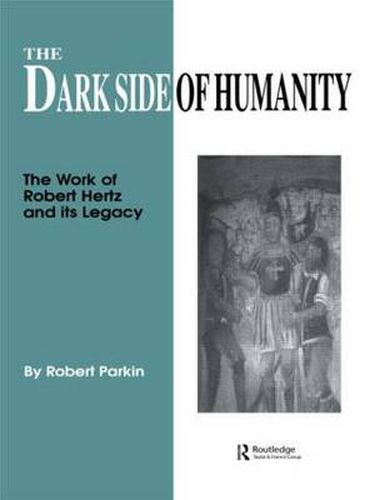Readings Newsletter
Become a Readings Member to make your shopping experience even easier.
Sign in or sign up for free!
You’re not far away from qualifying for FREE standard shipping within Australia
You’ve qualified for FREE standard shipping within Australia
The cart is loading…






For the social anthropologist, the work of Robert Hertz has assumed more importance than that of any other scholar attached to the school of EMile Durkheim, excluding only Marcel Mauss and Durkheim himself. This is due mainly to the influence of his two key texts concerning ritual and symbolism, that on the death of 1907 and that on right and left hands of 1909. His other works are now also becoming better known, namely his recently translated work on sin and his ethnographic study of the cult of St Besse, in northern Italy. This work provides a reading of each of these texts before going on to show their subsequent influence on anthropologists in particular. Parkin’s activities as reviewer and pamphleteer are also covered. The introductory biographical chapter, drawing on Hertz’s surviving papers in the College de France, shows his own ambivalence towards his academic career and it also attempts to clarify the circumstances leading up to his apparently gratuitous death in the First World War. Two further chapters attempt to situate his work in the broader context of Durkheimian sociology.
$9.00 standard shipping within Australia
FREE standard shipping within Australia for orders over $100.00
Express & International shipping calculated at checkout
For the social anthropologist, the work of Robert Hertz has assumed more importance than that of any other scholar attached to the school of EMile Durkheim, excluding only Marcel Mauss and Durkheim himself. This is due mainly to the influence of his two key texts concerning ritual and symbolism, that on the death of 1907 and that on right and left hands of 1909. His other works are now also becoming better known, namely his recently translated work on sin and his ethnographic study of the cult of St Besse, in northern Italy. This work provides a reading of each of these texts before going on to show their subsequent influence on anthropologists in particular. Parkin’s activities as reviewer and pamphleteer are also covered. The introductory biographical chapter, drawing on Hertz’s surviving papers in the College de France, shows his own ambivalence towards his academic career and it also attempts to clarify the circumstances leading up to his apparently gratuitous death in the First World War. Two further chapters attempt to situate his work in the broader context of Durkheimian sociology.